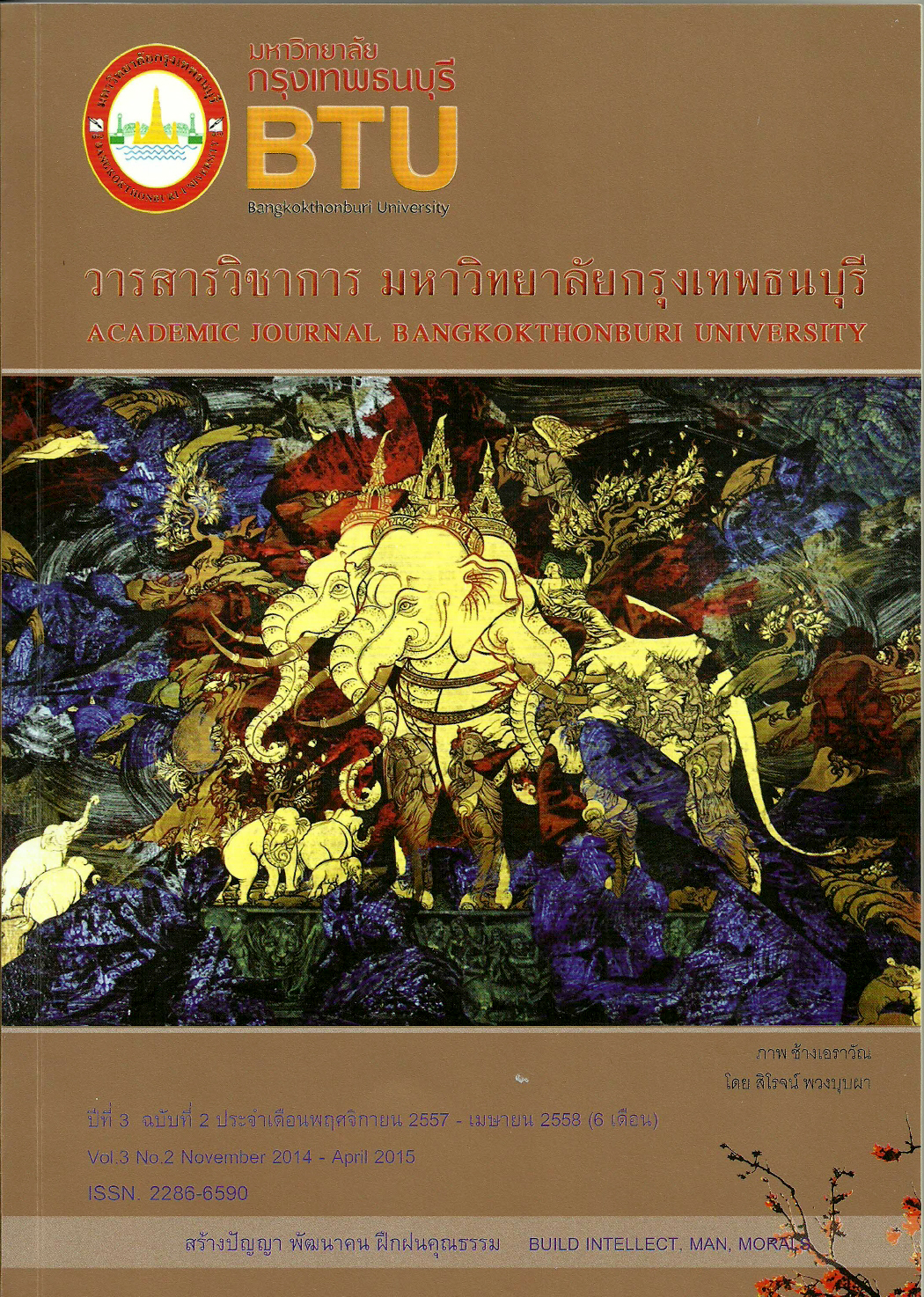บทบาทสถาบันทางสังคมในการให้ความรู้ทางการเมืองการปกครองแก่นักเรียนชั้นมัธยมศึกษาปีที่ 6 อำเภอวังทอง จังหวัดพิษณุโลก
Main Article Content
Abstract
การวิจัยครั้งนี้มีวัตถุประสงค์ดังนี้ 1) เพื่อศึกษาบทบาทสถาบันทางสังคมในการให้ความรู้ทางการเมือง การปกครองแก่นักเรียนชั้นมัธยมศึกษาปีที่ 6 อำเภอวังทอง จังหวัดพิษณุโลก 2) เพื่อเปรียบเทียบบทบาท การให้ความรู้ทางการเมืองการปกครองแก่นักเรียนชั้นมัธยมศึกษาปีที่ 6 ของสถาบันทางสังคมที่ต่างกัน วิจัยนี้เป็นการวิจัยเชิงปริมาณ กลุ่มตัวอย่าง ได้แก่ นักเรียนชั้นมัธยมศึกษาปีที่ 6 อำเภอวังทอง จังหวัด พิษณุโลก จำนวน 165 คน เครื่องมือที่ใช้ในการวิจัย ได้แก่ แบบสอบถาม สถิติที่ใช้ในการวิจัย ได้แก่ค่า เฉลี่ย () ส่วนเบี่ยงเบนมาตรฐาน (S.D.) และการทดสอบค่าที (t - One-Sample Test) ผลการวิจัยพบว่า บทบาทสถาบันทางสังคมในการให้ความรู้ทางการเมืองการปกครองแก่นักเรียนชั้นมัธยมศึกษา ปีที่ 6 อำเภอวังทอง จังหวัดพิษณุโลก โดยรวมอยู่ในระดับปานกลาง สถาบันการศึกษามีบทบาทให้ความรู้ ทางการเมืองการปกครองสูงสุด สถาบันทางการเมือง มีบทบาทให้ความรู้ทางการเมืองการปกครองต่ำสุด สถาบันครอบครัว และการศึกษา มีบทบาทให้ความรู้ทางการเมืองการปกครองแก่นักเรียน ชั้นมัธยมศึกษาปีที่ 6 แตกต่างกันอย่างมีนัยสำคัญทางสถิติที่ระดับ 0.05 ส่วนกลุ่มเพื่อน สื่อแขนงต่างๆ และ การเมือง มีบทบาทให้ความรู้ทางการเมืองการปกครอง ไม่แตกต่างกัน
Social Institutions’ Roles in Imparting Knowledge on Politics and Administration to High School Students: A Case Students of Wang-Thong District, Phitsanulok Province
The objectives of the study are twofold: 1) to investigate the social institutions’ roles in imparting knowledge on politics and administration to high school students; and 2) to compare the roles of different social institutions regarding the imparting of the aforesaid knowledge to high school students. The study is quantitative in nature. 165 high school students studying in Wang-Thong District comprised the sample for the study. The study instrument was a set of self-administered questionnaires. The collected data were analyzed by means of descriptive statistics and a t-test. The data analysis has shed hight on the following facts: Holistically, the social institutions’ roles with regard to the imparting of knowledge on the politics and administration to the high school students were found to be at a medium level. Comparatively speaking, the educational institutions imparted the knowledge on politics and administration to the greatest extent, whereas the political institutions imparted the knowledge on politics and administration to the high school students to the least extent. It was all found that family institutions and educational institutions differed in their roles in imparting knowledge on politics and administration to the high school students; the difference was statistically significant at the .05 level. As for peer groups, various made media and political institutions, they failed to differ in imparting the knowledge to the high school students.


